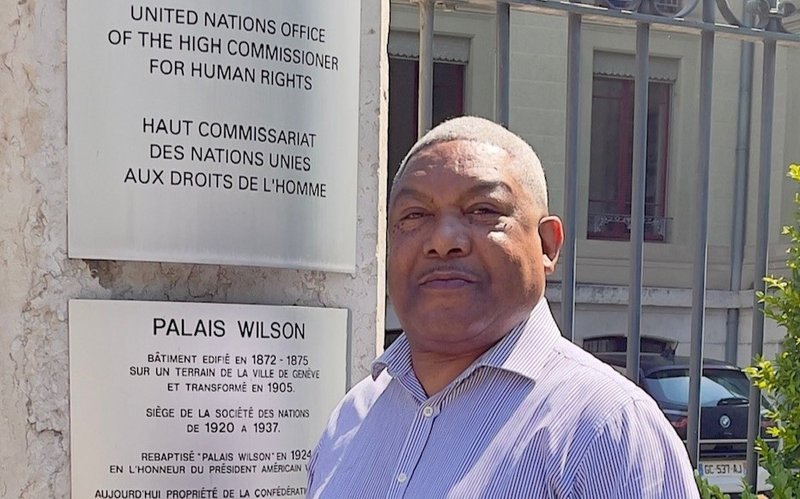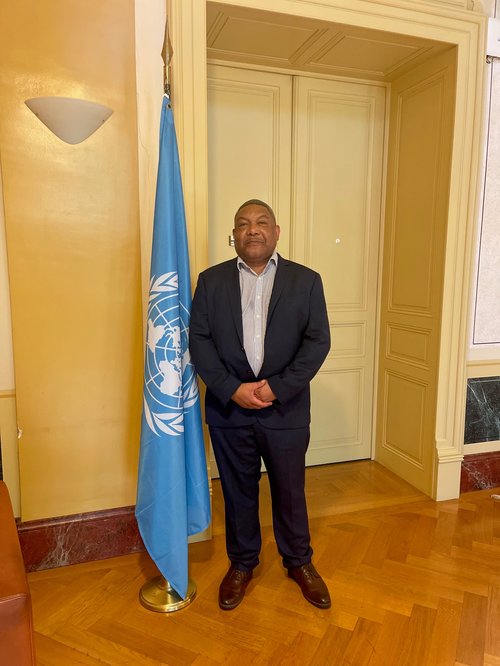In this blog for Black History Month, Bevan Powell, the Connexional Director for Inclusion, reflects on his presentation to the United Nations Committee on the Elimination of Racial Discrimination (CERD) in Geneva. Bevan represented the Methodist Church and Churches Together in Britain and Ireland during a challenging time in the UK, with riots occurring in towns and cities.

Back in early August, I had the privilege of presenting to the United Nations Committee on the Elimination of Racial Discrimination (CERD) in Geneva, representing the Methodist Church and Churches Together in Britain and Ireland (CTBI) - Racial Justice Advocacy Forum (RJAF). The visit came at a pivotal moment, as the UK was confronted by a wave of summer riots, sparked by the tragic murder of three children in Southport. These riots were not solely a reaction to the Southport incident, they reflected fractures in our society, growing xenophobia, Islamophobia, and anti-immigrant sentiment. Tensions were further heightened by a constant and divisive rhetoric over many years, including the UK government's "hostile environment" policies targeting immigrants. Additionally, long-standing socio-economic issues, such as poverty, a chronic shortage of affordable housing, and feelings of exclusion helped fuel the unrest.

These events added greater urgency and significance to the discussions at CERD, underscoring the need for action to address racial disparities, particularly within the criminal justice system. The Methodist Church’s commitment to being a ‘Justice Seeking Church’ was central to this call for change.
One of the pressing issues I raised during the presentation was that of institutional racism, which impacts the UK’s criminal justice system. Government statistics show that black people continue to face disproportionate levels of incarceration, are more likely to be stopped and searched, and, in the case of Black children, often experience "adultification," where they are unjustly treated as older and more culpable than their peers. This discrimination fuels an ongoing cycle of community mistrust, criminalisation and reinforces structural inequality.
Against a backdrop of fear and anxiety that many felt as a result of the riots, our recommendations to CERD felt even more pressing. We called for a more transparent justice system, greater police accountability to local communities and a call for increased safeguards for Black children in schools in an effort to reduce the issues of ‘adultification’.
In addition to calling for criminal justice reform, I expressed the need for reparations in relation to African chattel enslavement. The legacy of slavery continues to shape the landscape of racial inequality in society today. I urged the government to take responsibility for meaningful engagement on the issue. This is particularly poignant as we (Methodist Church in Britain) continue efforts to better understand and address the Church’s historical links to the Transatlantic slave trade.
As part of this work, we encourage local circuits and churches to watch the documentary, After the Flood: The Church, Slavery and Reconciliation. The film is produced by the Movement for Justice and Reconciliation and examines the complicity of the 18th century Church in the transatlantic slave trade. A link to download the film can be found at the end of this blog.
The ongoing Windrush scandal serves as an example of how historical wrongs continue to manifest in the present. I urged the British government to provide clear timelines and transparency in addressing this injustice.
Attending CERD in the midst of the summer riots reinforced the importance of the work of the Church in challenging injustice and standing in solidarity with those who are marginalized. The violence and unrest heightened the urgency for action, as it highlighted the devastating impact of racial inequality and the deep divisions within our society. Our commitment to ‘Justice-seeking Church’ and 'Justice, Dignity, and Solidarity' is not just a response to these challenges but a core expression of our discipleship, mission and faith.
The Church, Slavery and Reparations
After the Flood
Starting in Black History Month, Methodist churches are invited to show the film “After the Flood: the Church, Slavery and Reparations” and begin a conversation about responding to the lasting damage caused by the transatlantic traffic in enslaved Africans. Organise a free showing of the film and send in your response.